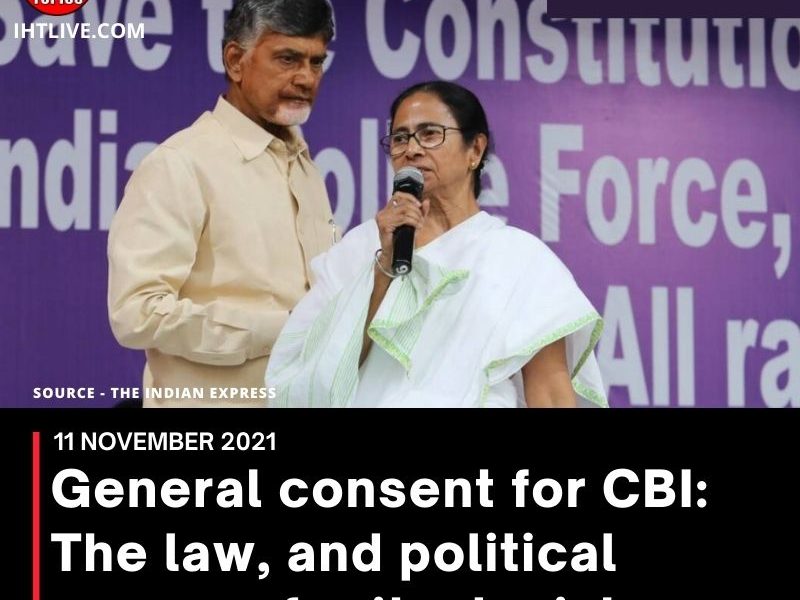The Supreme Court expressed concern this week about an opinion submitted by the CBI, which stated that since 2018, about 150 sanctions investigation requests have been pending and eight state governments have withdrawn their general consent to the agency. “This is not an ideal position,” the judge led by Justice S K Kaul observed and referred the matter to the Chief Justice of India N V Ramana.
The CBI filed an affidavit after the court asked about the bottleneck it faced and the steps it took to strengthen the prosecution last month. What is general consent? The National Investigation Agency (NIA) is governed by the 2008 NIA Act and has jurisdiction throughout the country. However, the CBI is governed by the Delhi Special Police Establishment (DSPE) Act of 1946, and must obtain the consent of the relevant state government before starting to investigate crimes in a certain state. The consent of the state government can be for specific cases or general.
“General consent” is usually provided by states to help CBI conduct seamless investigations of corruption cases against central government employees in their states. Almost all states have traditionally given this kind of consent. Without this kind of consent, the CBI must apply to the state government under any circumstances, even before taking small actions. Section 6 of the DSPE Act (“State Government agrees to exercise power and jurisdiction”) stipulates: “Nothing in Section 5 (“Extension of Power and Jurisdiction of Special Police Establishment to Other areas”) shall not be deemed to cause any The members of the Delhi Special Police Agency exercise power and jurisdiction in any area of the state (not belonging to Union territory or railway areas) without the consent of the state government.”
Which states have withdrawn their general consent and why? Currently, eight states have withdrawn their consent to the CBI: Maharashtra, Punjab, Rajasthan, West Bengal, Jharkhand, Chhattisgarh, Kerala, and Mizoram state. All states except Mizoram are ruled by the opposition. In fact, Mizoram was the first state to withdraw consent in 2015. At that time the state was ruled by Congress, and Lal Thanhawla was the chief minister. In 2018, the Mizo National Front (MNF) under the leadership of Zoramthanga came to power; however, even though MNF was an ally of the NDA, it did not resume its consent to the CBI. In November 2018, the West Bengal government led by Mamata Banerjee withdrew the general consent given to the CBI by the Left Front government before 1989. TDP, made a similar decision. “What Chandrababu Naidu did is absolutely correct. The BJP is using the CBI and other institutions to pursue its own political interests and vendettas,” Banerjee said. However, after the Naidu government was replaced by Y S Jagan Mohan Reddy in 2019, Andhra Pradesh reinstated its consent. The Bhupesh Baghel Congress government in Chhattisgarh withdrew its consent in January 2019. Punjab, Maharashtra, Rajasthan, Kerala and Jharkhand will follow in 2020. When withdrawing consent, all states claimed that the central government was using the CBI to unfairly target the opposition.
News Source: The Indian Express

